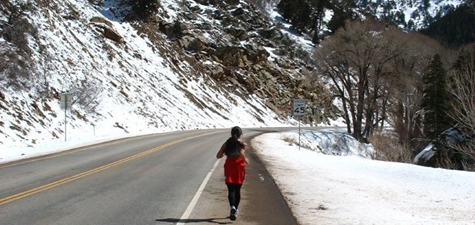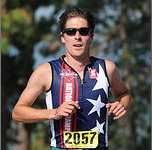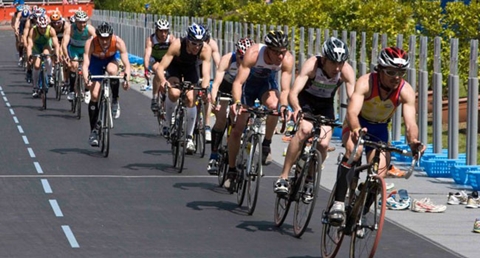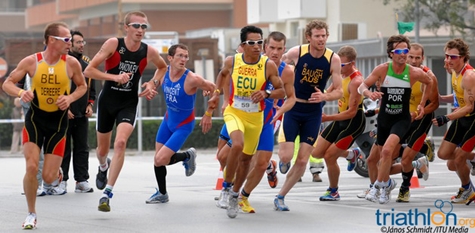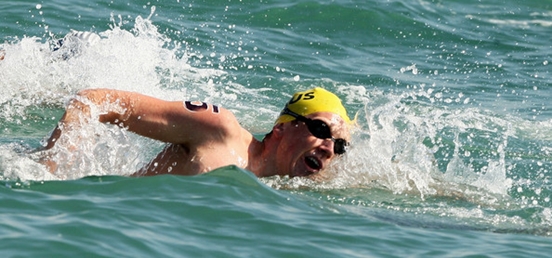Conquering Running Injuries and Other Setbacks
David Halberstam, the Pultizer Prize winning author of subjects such as the Vietnam War, politics and culture, authored a little-known book on Olympic sculling called The Amateurs. In it, he chronicles the journey of four men to Olympic glory in the grueling and brief rowing disciplines. One of the most specific and psychologically devastating, in my opinion, points made is that rowers will train for years upon years and likely have a single chance at a single race that lasts just a few minutes.
Over the last three months I reflected upon that repeatedly as I dealt with an injury that completely sidelined me. Well, sort-of. After a few months of nagging soreness, I decided to see my sports doc and get an MRI. The results: two stress fractures within my pelvis. The nature of this injury precluded any running, cycling, and even kicking in the swimming pool.
Injuries for athletes can elicit a wide spectrum of responses. Some see it as a chance to rest while others struggle to fill their previous time spent training. Regardless, our identities and self worth are likely wrapped up in our ability to carry out the activities we love. It’s no surprise that depression will follow closely behind the initial injury. For someone like me getting a little long in the tooth, time spent away from training and racing takes a toll that is difficult to repay. With limited years left at the level that I wish to compete, I knew I needed to deal with psychological impact differently than I would have when I was, say, twenty three
Opportunity
After the shock that I would miss two national multi-sport events and one of the biggest running road races in the world, I had trouble recognizing what my goals would be. But then I saw this injury as an opportunity. Here was the chance to get some of my house projects done; a chance to spend more time with my kids; and even a chance to get my swimming back. I quickly pivoted away from the mire of self pity to the rehab physically and mentally. I began to swim every day to preserve every bit of fitness possible and to rebuild upper body strength. Opportunities for late season races began to open up and I started to get excited about training again. The guilt of having to meet daily training goals was replaced by true eagerness to return to top form (you have to understand, living in the forever dour environment that is the Pacific Northwest takes its toll).
Rehabilitation and Lessons Learned
I literally followed the rules on this one. In the past I would have tested and cheated and tried to get back out there too soon. This time I was disciplined and didn’t run a step in the required three month rehab period. I pulled in the pool and ramped up my riding on the trainer and stuck to my plan. The result is that I am healed and it bugs the hell out of me that I didn’t deal with my injury earlier. As I start running this week, I am starting from a known position of health rather than questioning my decisions. Here are some things I learned:
• Get Over Yourself: I’ve said it before, you need to deal with the injury, think about the future and take the first baby-steps back
• Recognize Opportunities: Recognize opportunities: a chance to participate in other races you would never do as your season is now shifted
• Get Happy: Having had the injury as training has become a delight rather than a chore
• Be Present: Spend extra time with the family
• Get Smart: Learn from the injury and make adjustments
We have so many opportunities to redeem ourselves and come back from injury. Thinking about those Olympic scullers and how a whole life’s work can come down to a few minutes puts it all in a little more perspective. Take the time you need to rehab and refocus your commitment. There will be plenty of chances to prove yourself.
(Final note: take the time to read The Amateurs! Even as a runner, I found it more encouraging and inspiring than any book on running or cycling that I have ever read.)
Chris Harig is competitive runner, multisport athlete, and coach based in the
Seattle area. In 2007 and 2008, he was the top American at the ITU Duathlon
World Championships. Chris is also the 2010 USA Long Course Duathlon National Champion. More about Chris Harig.

